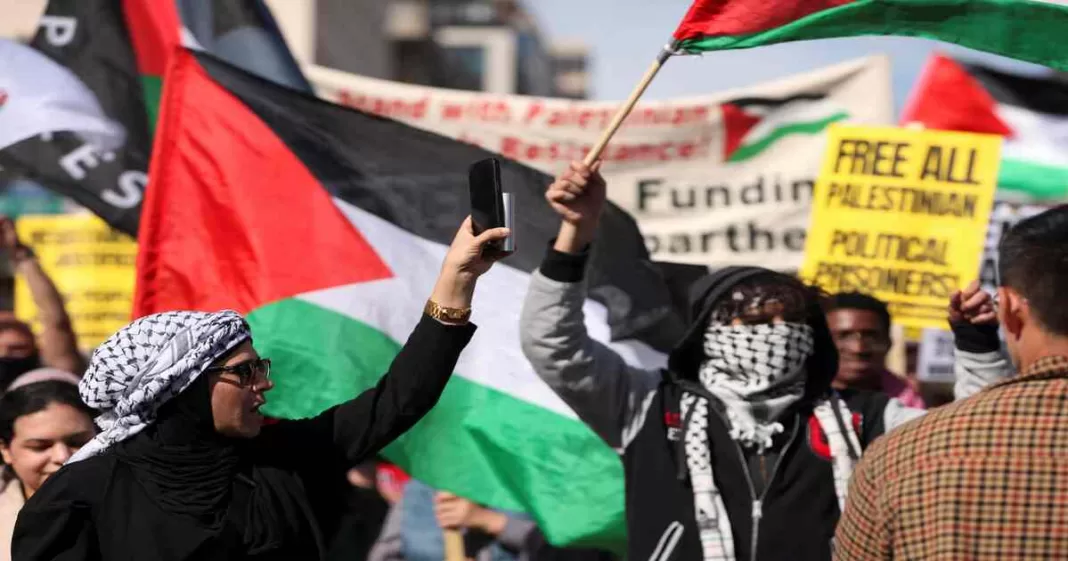November 29 marks the International Day of Solidarity with the Palestinian People, an observance introduced by the United Nations in 1977 to highlight the enduring plight of Palestinians. The date commemorates the adoption of the UN General Assembly resolution 181 in 1947, which partitioned Palestine, sowing the seeds of decades-long conflict and displacement.
Palestinian voices emphasize the significance of this day in spotlighting their 75-year struggle for justice, human rights, and statehood. For many, it is a solemn reminder of historical injustices and the continued marginalization they face under occupation. “Every day should be a day of solidarity with the Palestinians,” say advocates, underlining the unrelenting oppression and the daily toll exacted on Palestinian lives since the establishment of Israel.
The Human Cost of Conflict
Generations of Palestinians have grown up in refugee camps across the occupied West Bank, Gaza, and neighboring countries. These camps symbolize not only their enduring dispossession but also the failure of the international community to resolve the crisis. The brutalities of Israeli occupation, compounded by frequent military incursions, have inflicted immense suffering. For over a year, Gaza has borne the brunt of Israel’s war tactics, leaving countless lives shattered and homes destroyed.
In the words of Palestinian refugees, solidarity from the global community offers a glimmer of hope in achieving independence. Many argue that grassroots advocacy and political pressure on governments supporting Israel could shift the narrative. An American-Palestinian activist remarked, “What is most important is that we stop our governments from supporting genocide. Palestinians are in dire need of global action.”
The ongoing war in Gaza has intensified calls for justice, with massive protests erupting on university campuses and in global capitals. These movements reflect growing international frustration over the indifference of world powers to the humanitarian crisis in Palestine.
The Role of Solidarity in Political Change
The events of October 7, 2023, marked a turning point in international discourse on Palestine. The unprecedented escalation in violence and its impact on regional stability compelled many to reexamine the roots of the Palestinian-Israeli conflict. Public demonstrations and solidarity campaigns have been notably larger and more sustained this time, with a new generation of activists taking up the cause.
Read More: Saudi Arabia Faces Scrutiny Over 2034 World Cup Bid
In Western nations, particularly in Europe and North America, awareness of the Palestinian plight has grown. Advocacy groups, human rights organizations, and influential figures have amplified calls for justice, pressuring governments to reconsider their support for Israeli policies. This shift signifies a gradual but critical change in global attitudes toward the conflict.
However, political inertia remains a significant barrier. The international community, despite its rhetoric, has failed to hold Israel accountable for its actions, including allegations of war crimes in Gaza. Critics argue that the United Nations’ symbolic gestures, such as the International Day of Solidarity, must be accompanied by tangible actions to address Palestinian grievances and enforce their rights under international law.
The Human Rights Perspective: Beyond Political Wrangling
The Palestinian cause transcends geopolitics, encompassing fundamental human rights denied for decades. These include the right to self-determination, freedom from occupation, and the ability to live with dignity. Legal instruments such as UN resolutions affirm these rights, yet their implementation remains elusive.
Zaha Hassan, a prominent Palestinian human rights lawyer, has called for a world where the rights of Palestinians are respected as a cornerstone for peace. “The recognition and implementation of Palestinian rights are the key to any solution in the Middle East,” she stated during a recent solidarity event.
The humanitarian crisis in Gaza, described by many as a genocide, has underscored the urgent need for action. From children killed in airstrikes to families displaced by military campaigns, the ongoing violence has reached alarming proportions. Yet, global powers, particularly the United States and the European Union, continue to support Israel diplomatically and militarily, fueling further unrest.
Building on Solidarity
The International Day of Solidarity with the Palestinian People serves as a reminder of the unfulfilled promise of justice. While the day garners attention, activists stress the need for sustained global pressure to achieve meaningful change. They urge political establishments worldwide to prioritize human rights over strategic alliances.
Grassroots movements have proven effective in rallying support for Palestine, but real progress hinges on systemic change. This includes holding Israel accountable for its actions, ending military occupation, and addressing the refugee crisis.
For Palestinians, solidarity is more than symbolic—it is a lifeline in their struggle for freedom. As the world observes this day, the message from Gaza, the West Bank, and diaspora communities is clear: peace is achievable, but only when justice prevails.














